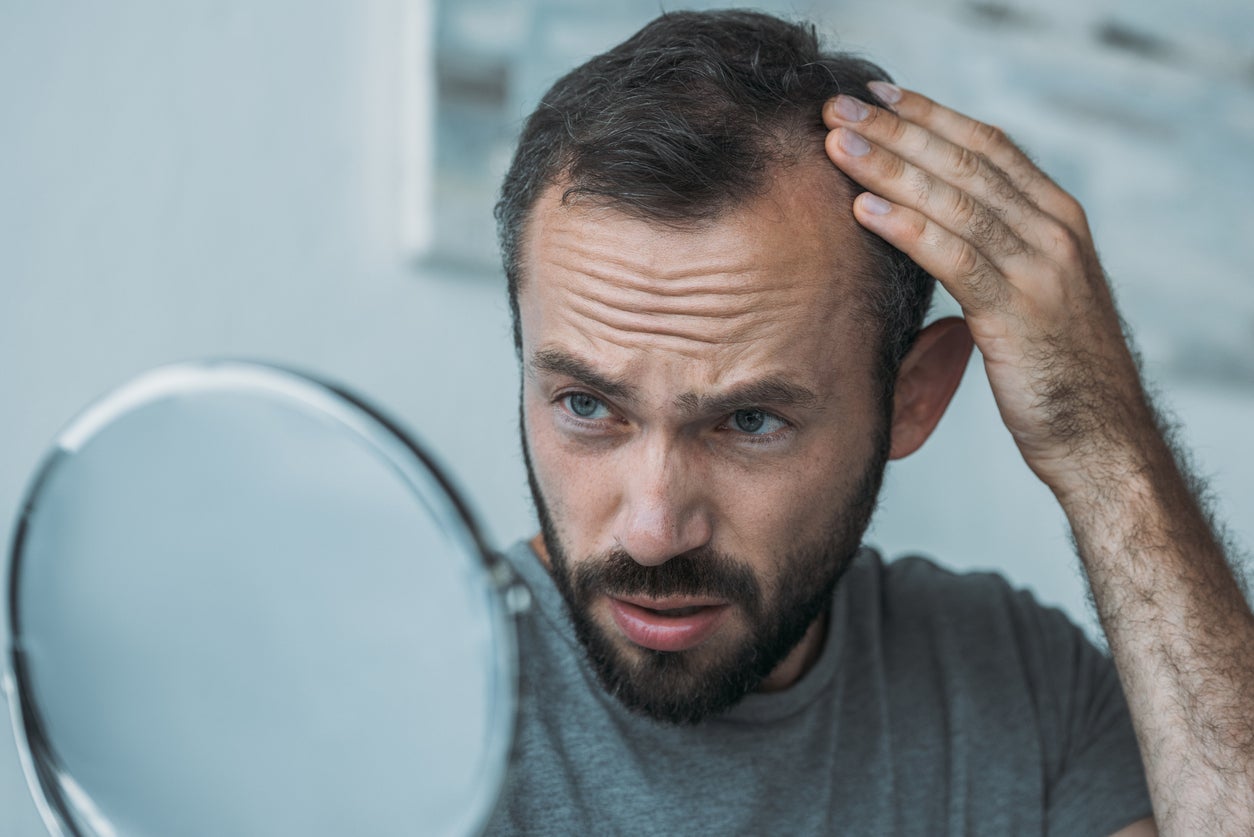ARTICLE AD BOX
Heroes and Star Wars actor Greg Grunberg has revealed that he has alopecia which he believes was triggered when he had knee replacement surgery in October.
The 58-year-old who is best known for playing Matt Parkman in Heroes and Temmin "Snap" Wexley in The Force Awakens (2015) and The Rise of Skywalker (2019) spoke about his diagnosis on the YouTube channel for his education and awareness company, Talk About It.
“First of all, I want to thank everybody who's asking if I'm okay, you know, 'What's going on? I saw pictures of you, you have no hair, what's happening?' Well this is what's happening," said the actor as he removed a black cap to reveal his bald head.
“I, all of a sudden, got alopecia and I knew nothing about it. I'm still learning about it,” admitted the actor.
Given the nature of his company, which encourages people to open up about sensitive topics and key issues, Grunberg said it would be "hypocritical" not to discuss what has happened to him.
Grunberg theorised that his alopecia was brought on by his knee operation explaining: “I think it shocked the alopecia into, you know, actually presenting itself. I think I probably had it dormant in my body for a long time.”
The actor, who starred as Eric Weiss in Alias, added that he also has Hashimoto’s disease, a condition which causes hypothyroidism, or an underactive thyroid. Thinning hair is a common symptom of the disease.
“What I've learned in this immediate, you know, just doing the googling and the searching and going on all these chat groups and everything, is millions of people have this," Grunberg continued. "And I look good! I mean, I'm lucky, all right? I look good."
Grunberg said that he is choosing to embrace his new look and that otherwise, he is in good health.
“All my tests are coming back negative, my numbers are down, I'm eating right, I'm exercising, I'm doing all the right stuff," he claimed. "No need to worry, everything is good… So thank you, I love you all. Thank you so much for all of your concerns and your questions. It's alopecia and a lot of people have it and a lot of people – most people – live well with it, so that's what I'm doing, getting ahead of it."

Other top stars who have shared that they have alopecia include actors Jada Pinkett Smith and Ashley Tisdale, singer Paloma Faith and broadcaster Louis Theroux.
The word “alopecia” is a general term for hair loss, but there are several different types of alopecia. According to Alopecia UK, there are nine different types of the condition that people can develop, but the most common are androgenetic alopecia and alopecia areata.
Some types of alopecia cannot be treated depending on how widespread the hair loss is, but dermatologists may be able to help offer treatments for other types.
Common treatments include topical steroids in the forms of creams, ointments, lotions or foams that are applied directly to the scalp or skin surface to stimulate hair growth.
Some patients are also recommended steroids that are injected into the affected areas with a fine needle, or systemic corticosteroids that can be taken orally as a pill or as an injection in the muscle.
The NHS warns that most treatments are not available in the health service and will have to be paid for at private clinics, and no treatment is 100 per cent effective.

Meanwhile, Hashimoto’s disease is perceived as common, affecting about five per cent of people in the US, per the Cleveland Clinic. The condition can cause an underactive thyroid, and people who are diagnosed with the disease live with it for the rest of their lives.
Many different symptoms are caused by lower-than-normal thyroid hormone levels triggered by Hashimoto’s disease, including weight gain, constipation, and fatigue. Other warning signs include feeling cold, dry skin, slower heart rate (also called bradycardia), muscle pain, joint stiffness, brittle or dry hair, hair loss, slow hair growth, depression, puffy eyes, and difficulty concentrating.
Not everyone requires treatment for Hashimoto’s disease; sometimes, doctors prefer to monitor their patients instead of starting them on medications. However multiple drugs are available that can help with the disease. The go-to medication is called levothyroxine, and there are multiple brand name options available in the US.
Levothyroxine helps regulate thyroid hormones, and people with Hashimoto’s disease have to take it every day. While the dose they require may change, they will have to take it for the rest of their life. The drug can cause complications such as irregular heartbeat, feeling shaky, unexplained weight loss, changes in your period, irritability, and sweating more than normal.









 English (US) ·
English (US) ·